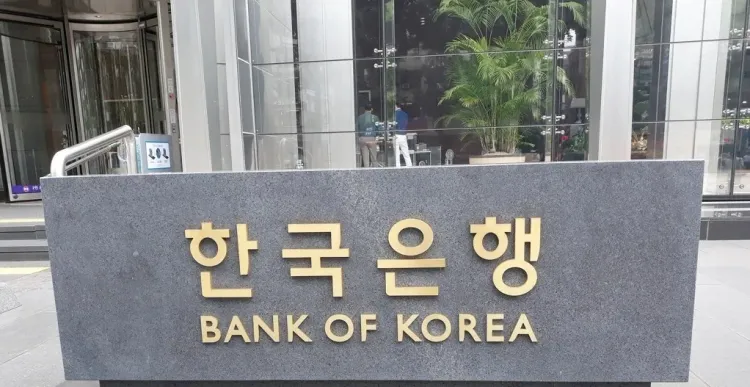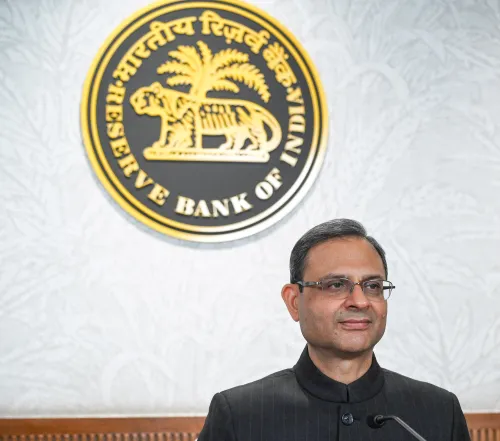January Sees Continued Decline in Household Borrowing Due to South Korean Regulations

Synopsis
Key Takeaways
- Household loans decreased for the second consecutive month.
- Outstanding loans reached 1,140.5 trillion won.
- Home-backed loans increased, but unsecured loans fell.
- Corporate loans rose due to seasonal factors.
- South Korea plans to invest in advanced technologies.
Seoul, Feb 12 (NationPress) The volume of household loans provided by South Korean banks declined for the second month in a row in January, influenced by stricter loan regulations and a cooling real estate market, as indicated by data released on Wednesday.
The total outstanding household loans reached 1,140.5 trillion won (approximately US$785.08 billion) by the end of January, reflecting a reduction of 500 billion won compared to the previous month, according to information from the Bank of Korea (BOK), as reported by Yonhap news agency.
This decline marks the second consecutive monthly drop, following a decrease in household loans for the first time in nine months during December, as financial regulators urged major banks to enforce strict lending criteria to control soaring household debts and rising property prices.
In January, loans secured by homes increased by 1.7 trillion won from the prior month, building on an 800 billion won rise in December. By the end of January, the total outstanding mortgage loans amounted to 904.3 trillion won.
Conversely, unsecured loans and other types of loans offered by banks to households decreased by 2.1 trillion won, totaling 235.3 trillion won last month.
A BOK representative stated, “Banks started to relax some regulations on home-backed loans at the start of this year. However, the downturn in home transactions and property prices has resulted in reduced demand for new loans.”
On the corporate lending side, loans rose by 6.7 trillion won from the previous month, reaching 1,322.9 trillion won in January, following an 11.5 trillion won drop the month before amid growing uncertainties both domestically and internationally.
The representative explained, “The increase in corporate loans for January was likely due to seasonal factors, including funding for bonus payouts during the Lunar New Year and tax payments.”
In other news, South Korea plans to allocate US$285 million towards advancing technologies aimed at spurring innovation across various sectors by 2031, as announced by the industry ministry on Wednesday.
The investment initiative commenced in 2022, targeting the support of innovative technology development projects that aim to transform future industries, as stated by the Ministry of Trade, Industry and Energy.
This year, the ministry has identified three new areas for investment: overcoming space-time limitations in energy transmission, developing advanced cybersecurity solutions, and integrating neuro-artificial intelligence (AI) technology to enhance human physical capabilities.










